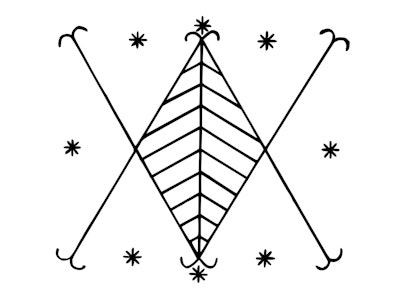Voodoo

Founder: There is no single founder of voodoo
Characteristics: This spiritual expression is a blend of African animism, spiritism, and indigenous religion, and in some circumstances contains elements of shamanism, black magic, and witchcraft
Founded: There is no determinative date for the origin of voodoo spirituality
Major schools: West African Voodoo, Louisiana Voodoo (also known as New Orleans Voodoo), Haitian Voodoo
Other names and pronunciations: vodou, vodun, vodoun, vudun
Primary locations where it is practiced: West Africa, Haiti, Puerto Rico, Brazil, Cuba, the Dominican Republic, and America, especially in Louisiana
Voodoo schools
Voodoo is a fusion of religious practices from Africa that often takes on different characteristics and emphases when practiced in various locations:
- West African voodoo has been less influenced than other forms of voodoo because it is practiced in the place of its origination, yet Christianity's influence, particularly Roman Catholicism, is significant
- Louisiana voodoo has been heavily influenced by French, Spanish, and Creole populations that lived in Louisiana; it has also been influenced by Christianity, especially Roman Catholicism
- Haitian voodoo was been heavily influenced by African slaves from France; it has also been influenced by Christianity, especially Roman Catholicism
The different schools of voodoo have similarities and differences. For example, some practitioners of voodoo use “Gris-gris,” which are religious amulets believed to ward off evil spirits. Other schools of voodoo have "voodoo queens," which are female leaders that oversee various religious activities in their community. Also, some schools emphasize objects such as voodoo dolls (see more below). Furthermore, the belief, and interaction with, particular deities as well as particular lesser spirits, is often determined by voodoo school and location.
Voodoo Beliefs
Voodoo beliefs can vary depending on the school and location. Many practitioners of voodoo in West Africa believe in a supreme being, although among many followers the belief has been syncretized with Roman Catholicism so that their chief god is associated with the God of the Bible. Other schools of voodoo may not recognize a supreme being or associate the being with the Christian God.
All schools of voodoo believe in, and interact with, lesser spirits, as a key practice of their religion. These spirits are often called “loa” or “miste.” There are numerous “families” of spirits and named individual spirits, which practitioners interact with, which vary depending on school and location. Where voodoo has been heavily syncretized with Christianity the “loa” may be known by the names of Catholic saints.
In some voodoo communities, voodoo priests and priestesses play a special role as intermediaries who summon spirits and perform acts of sorcery.
Voodoo Dolls
Voodoo dolls are mostly associated with a form of African folk magic called “Hoodoo,” which is a mixture of animism, spiritism, and a combination of other religious beliefs and practices originating in Africa. In Hoodoo dolls have traditionally been made to represent an individual who the practitioner is attempting to put a spell or curse upon during a religious ceremony.
Voodoo dolls can be made from corn shafts, potatoes, clay, branches and roots or clothes stuffed with plant life. Although the dolls are called "voodoo" dolls, not all practitioners of the major schools of voodoo use them. Fictional movies and books often mischaracterize their use.
Voodoo Today
The voodoo religion today is influenced by its cultural context and influences its cultural context. As stated above, in West Africa practitioners of voodoo experience a heavily syncretized version of the religion with Christianity.
Louisiana voodoo has experienced syncretism with Christianity and it has also experienced the effects of American consumer culture. Tourists to the New Orleans area in particular show interest in the religion by buying voodoo paraphernalia for fun or decoration as opposed to sacred use.
In relation to Haitian voodoo, it too influences its surroundings, whether it be in Haiti or surrounding nations, including America, and is influenced by its surroundings as it experiences various forms of syncretism.



No comments:
Post a Comment